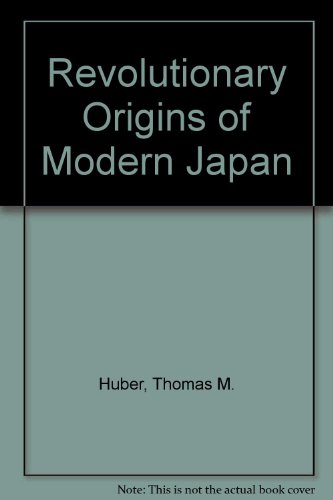Challenging the popular view of the Meiji Restoration as a "revolution from above," this book argues that its main cause was neither the growing threat of the West nor traditional loyalty to Emperor and nation, but rather lay in class conflict and long-term institutional change. The author sees the Restoration as a revolution against feudal privilege carried out from below by a service intelligentsia of minor administrators, priests, scholars, and village officials. The book focuses on the politically most effective body of activists, those in the domain of Choshu, and on their most important leaders of the 1850s and 1860s: Yoshida Shoin, Kusaka Genzui, and Takasugi Shinsaku. It examines their social and educational background, explores their motives for acting, and follows them through their intellectual and political struggles. The final chapter explains various heretofore puzzling aspects of the Meiji period (1868-1912) in terms of its revolutionary origins, and concludes by showing that the Restoration, far from being uniquely Japanese, had many of the characteristics we associate with the great revolutions of England, France, and Russia.
- ISBN10 0804710481
- ISBN13 9780804710480
- Publish Date 1 December 1989
- Publish Status Out of Print
- Out of Print 22 June 2021
- Publish Country US
- Imprint Stanford University Press
- Format Hardcover
- Pages 272
- Language English
